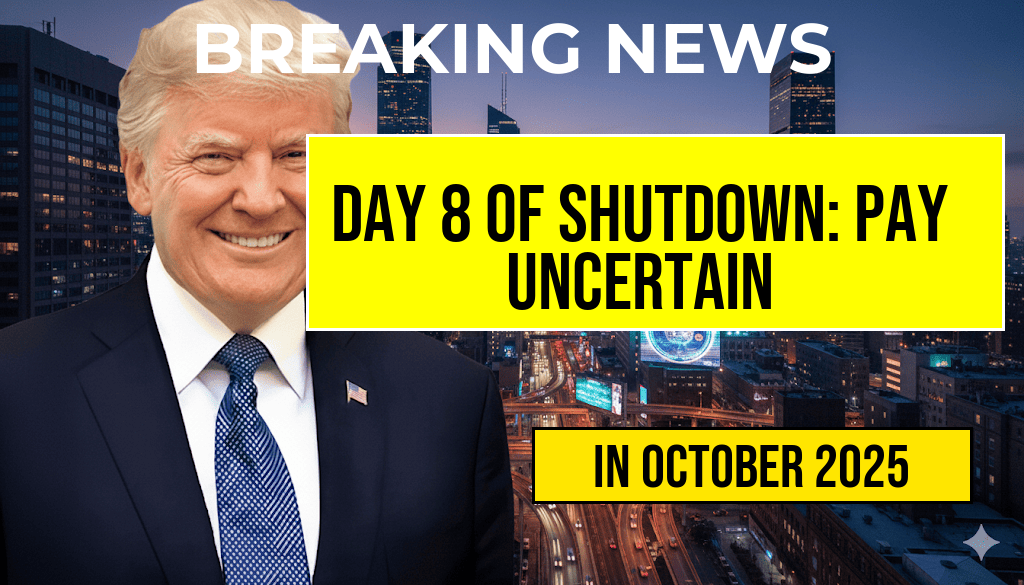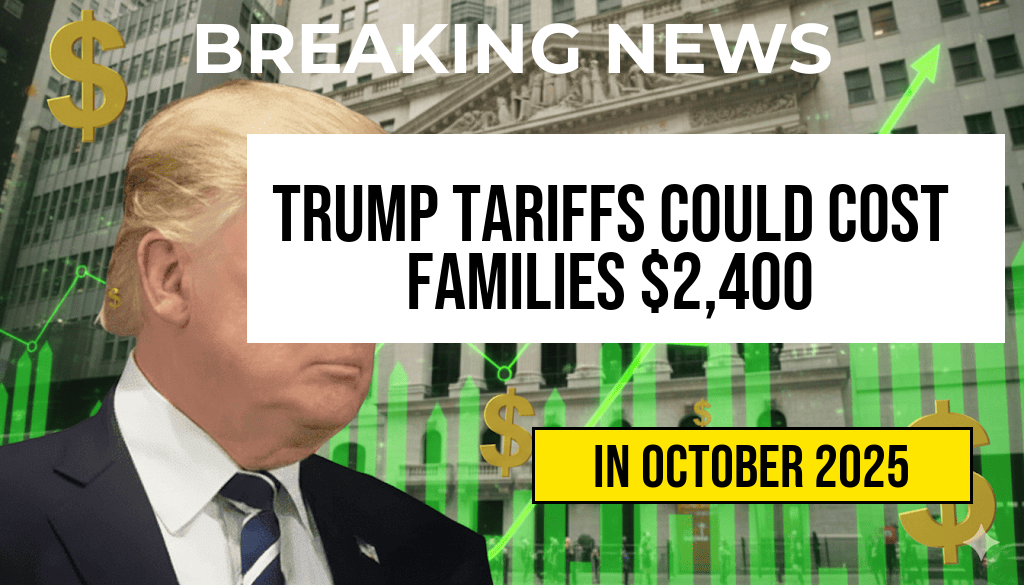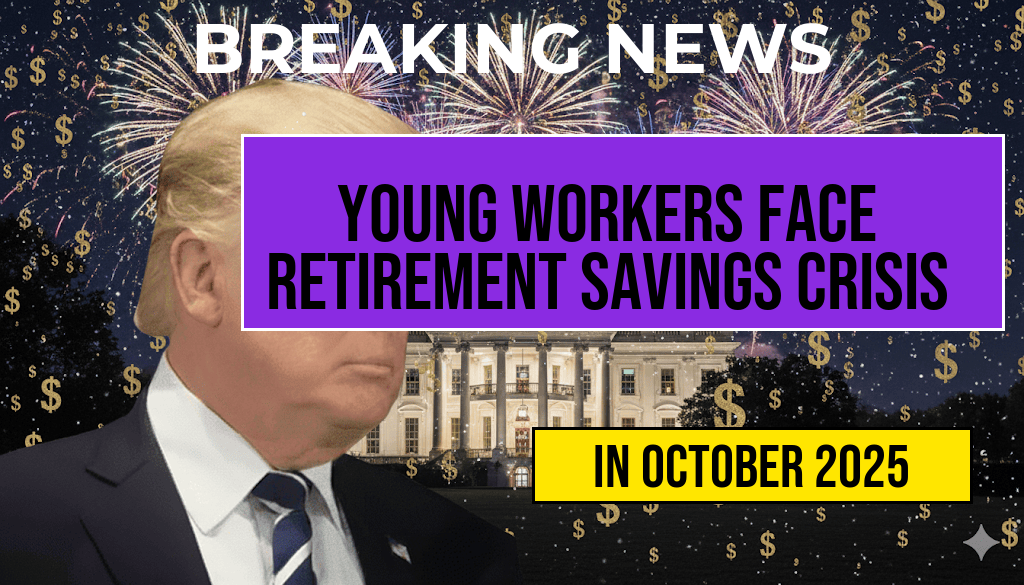As the government enters its eighth consecutive day of a shutdown, thousands of federal employees face mounting uncertainty regarding their compensation. With no clear resolution in sight, questions swirl around whether these workers will receive their full paychecks or if they will be left without wages altogether. The impasse stems from a deadlock in Congress over budget provisions and policy disagreements, leading to the closure of numerous federal agencies. While some employees have been furloughed and are temporarily unpaid, others continue working essential roles without pay, raising concerns about financial stability and morale. This situation underscores the broader implications of political gridlock, affecting not only government operations but also the livelihoods of millions of Americans reliant on federal services. As negotiations continue behind closed doors, federal workers, contractors, and their families await clarity on their financial future amid an uncertain political landscape.
Current Status of the Government Shutdown
Duration and Affected Agencies
| Agency | Status | Number of Employees |
|---|---|---|
| Department of Homeland Security | Partially operational | Approximately 230,000 |
| Department of Agriculture | Furloughed and essential workers working | Over 100,000 |
| Internal Revenue Service (IRS) | Furloughed | Approximately 80,000 |
| Environmental Protection Agency | Furloughed | Approximately 14,000 |
The shutdown, now in its eighth day, has resulted in the closure of many federal offices, delays in public services, and disruption of routine operations. Essential personnel, such as law enforcement and national security staff, continue working but often do so without pay until funding is restored.
Impacts on Federal Employees
Will They Receive Full Pay or Nothing?
Federal employees are divided into two categories during shutdowns: furloughed workers who are temporarily sent home without pay and essential workers who continue to perform their duties. The key question remains whether employees will receive their full wages for this period or face unpaid days.
Historically, during past shutdowns, Congress has often authorized back pay once funding is reinstated. The history of federal shutdowns indicates that most affected employees receive their overdue wages after the government reopens, though the delay can cause financial hardship.
Federal law stipulates that employees classified as essential or “excepted” continue working without immediate pay, with the expectation that they will be compensated once budget approval is secured. However, this process can extend weeks or even months, leaving many workers in financial limbo. Conversely, furloughed employees are officially not working and generally do not receive paychecks during the shutdown period, though legislation often provides for retroactive pay.
Legislative Efforts and Political Deadlock
Negotiations in Congress
Discussions in Congress remain tense as lawmakers debate spending levels and policy riders attached to federal appropriations bills. The divisions are primarily between Republican and Democratic leadership, with disagreements over border security, healthcare provisions, and other policy issues fueling the impasse.
Recent statements suggest that bipartisan negotiations are ongoing, but a concrete resolution has yet to emerge. Some lawmakers have expressed concern over the economic impact of prolonged shutdowns, emphasizing the need for urgent legislative action.
Potential for Resolution
Experts suggest that a short-term funding extension could provide immediate relief to federal workers, but broader negotiations are necessary to address underlying disagreements. Without a compromise, the shutdown risks extending beyond two weeks, compounding economic and social disruptions.
Economic and Social Consequences
Impact on Local Economies and Public Services
The shutdown’s ripple effects extend beyond federal workers, affecting local economies and public services across the country. Small businesses that serve federal employees report declines in patronage, and delay in processing permits, loans, and other services hampers economic activity.
Public health agencies, environmental regulators, and other critical services face operational challenges, potentially impacting safety and environmental standards. The uncertainty also erodes public confidence in government functions and highlights vulnerabilities in fiscal governance.
What Federal Employees Can Do
- Stay informed about official notices from their agencies and the Office of Personnel Management.
- Review their financial plans and explore emergency funds if available.
- Consult with financial advisors or worker unions for guidance during this period.
- Follow updates from credible news sources and government communications for developments on shutdown negotiations.
The situation remains fluid, with the potential for both resolution and prolongation. Federal employees, contractors, and the public continue to await clarity on when government operations will resume normal funding and whether affected workers will receive full compensation for their service during this uncertain period.
Frequently Asked Questions
Will federal employees receive their full pay during the 8th day of the government shutdown?
Currently, federal employees are facing uncertainty regarding their full pay. While some employees may receive partial or delayed payments, many are concerned about missing their full salary until the shutdown is resolved.
What is causing the government shutdown and how long might it last?
The government shutdown is caused by a budget impasse in Congress, often due to disagreements over funding priorities. The duration remains uncertain, with some shutdowns lasting a few days and others extending for weeks.
Are essential federal workers still working during the shutdown?
Yes, essential federal workers are typically required to continue working during a shutdown, but they may face delayed or reduced pay. Non-essential employees are usually furloughed without pay until the shutdown ends.
How can federal employees prepare financially during this period?
Federal employees are advised to review their financial plans, prioritize urgent expenses, and explore emergency savings. Some may also seek financial assistance or guidance from their agencies or unions.
What are the potential impacts of the shutdown on government services?
The shutdown can lead to disruptions in government services, delays in processing benefits and applications, and a slowdown in federal operations. The extent depends on how long the shutdown persists.






